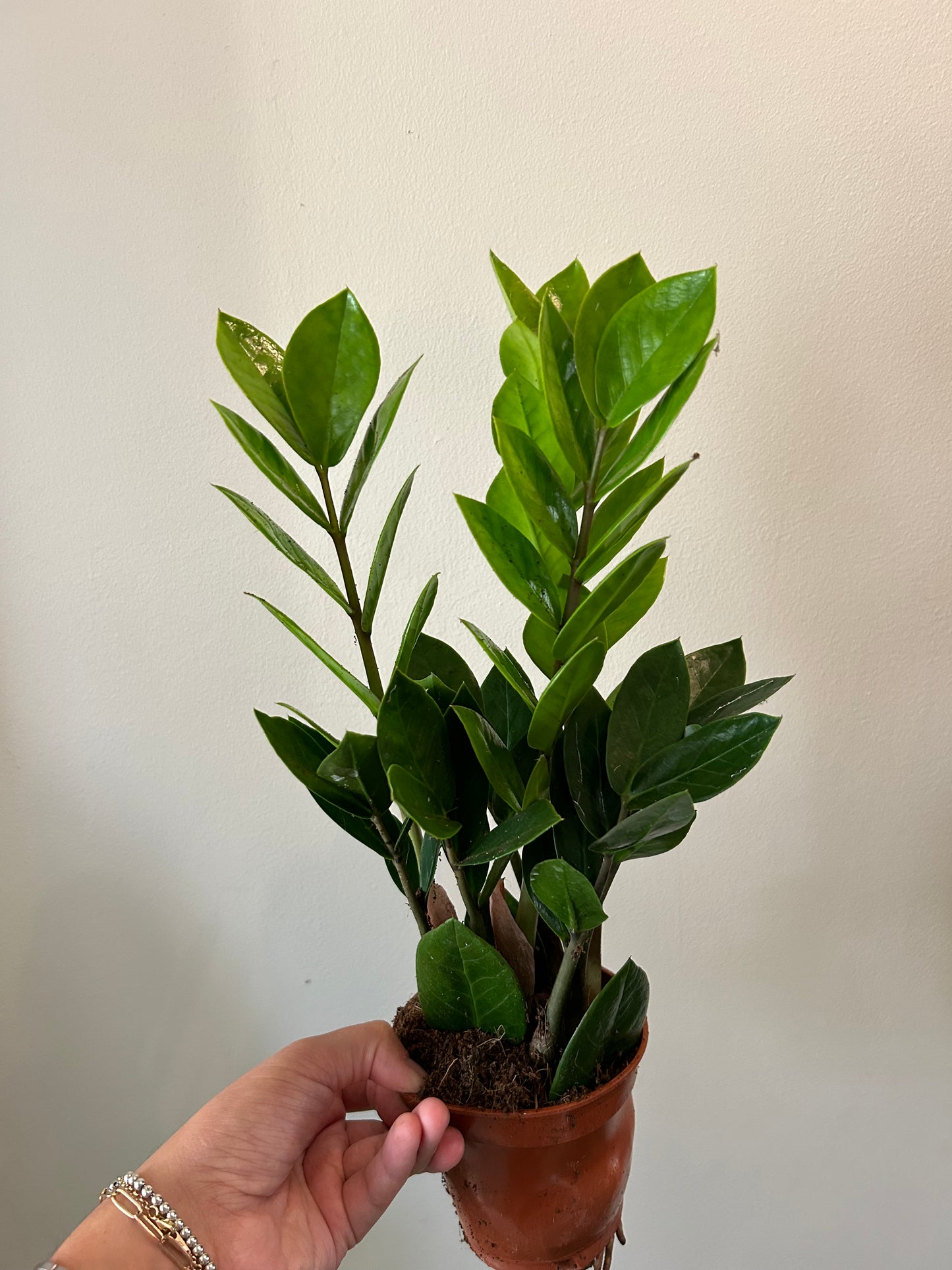Brontes Plants
ZZ Plant
ZZ Plant
Couldn't load pickup availability
`Zamioculcas zamiifolia, commonly known as the ZZ Plant, is a popular houseplant known for its hardiness and unique appearance. Here's a detailed guide on caring for this resilient and attractive plant:
Description
- Appearance: The ZZ Plant has glossy, dark green leaves that grow on sturdy, upright stems. The leaves are pinnate, with leaflets growing along the stem, giving it a distinctive feather-like appearance.
- Growth Habit: It grows slowly but steadily and can reach up to 2-3 feet (60-90 cm) in height. Its root system includes thick rhizomes, which store water and help the plant tolerate drought.
Care Guide
-
Lighting: Prefers low to bright indirect light. The ZZ Plant is particularly adaptable and can thrive even in low light conditions, making it suitable for spaces with limited natural light. However, avoid direct sunlight, which can scorch the leaves.
-
Temperature: Does well in average room temperatures, ideally between 18°C to 24°C. Avoid exposure to temperatures below 15°C and keep away from cold drafts.
-
Watering: The ZZ Plant is drought-tolerant, thanks to its rhizomes that store water. Water only when the top few inches of soil have dried out. Overwatering is a common issue and can lead to root rot. It's typically safer to underwater than overwater.
-
Soil: Use a well-draining potting mix. A mix designed for cacti or succulents works well, as it provides the necessary drainage.
-
Humidity: Tolerates a range of humidity levels and does well in the typical humidity found in most homes. No special humidity adjustments are required.
-
Feeding: Fertilize sparingly, about two to three times a year, with a balanced, water-soluble fertilizer. Over-fertilizing can harm the plant.
-
Pruning: Pruning is not typically required, but you can trim off any yellow or dead leaves at the base of the stem to keep the plant looking tidy.
-
Repotting: Repot every 2-3 years or when the plant becomes root-bound. When repotting, choose a pot only slightly larger than the current one, as the ZZ Plant prefers to be somewhat root-bound.
Share










